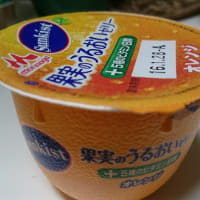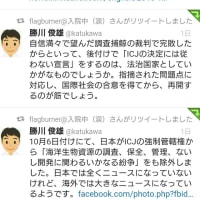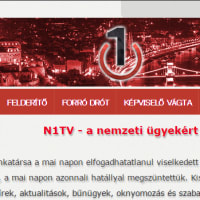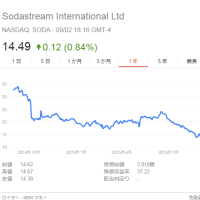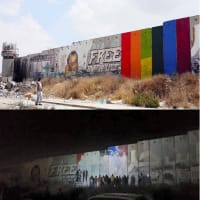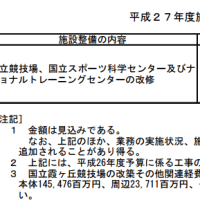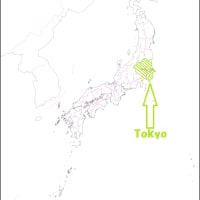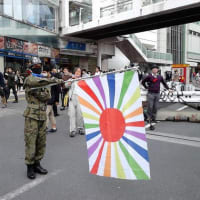今回は 972mag.com の記事経由のネタ(謎)。
・'The New York Times' investigates a Palestinian hobby(2013年8月5日 972mag.com)
今月4日、天下の NYTimes がヨルダン川西岸地区に住んでる人達の状況に関する記事を書いていた。
その中に、「俺の楽しみの1つは石を投げること」なんて少年の発言が紹介されてたのだが・・・。
・In a West Bank Culture of Conflict, Boys Wield the Weapon at Hand(2013年8月4日 nytimes.com)
NYTimes の記事の冒頭では、3年間で4回逮捕された17歳の少年ことムハンマド・アブー・ハーシェム(Muhammad Abu Hashem)君の発言が紹介されてた。
以下、2013年8月4日分 nytimes.com『In a West bank~』から序盤を(略
---- 以下引用 ----
BEIT OMMAR, West Bank ― Muhammad Abu Hashem, 17, was sleeping in a sleeveless undershirt when the Israeli soldiers stormed into his home here at 4 a.m. on the second Monday in July.
As they led him away moments later, Muhammad’s mother rushed after with a long-sleeved shirt: they both knew it would be cold in the interrogation room.
It was Muhammad’s fourth arrest in three years for throwing stones at Israeli soldiers and settlers.
His five brothers ― three older and two younger ― have all faced similar charges.
Last year, three Abu Hashem boys, and their father, were in prison at the same time.
“Children have hobbies, and my hobby is throwing stones,” Muhammad explained weeks before his most recent arrest.
“A day with a confrontation is better than a free day.”
(以下略)
---- 引用以上 ----
イスラエル軍兵士とかに石を投げるってのは、1987年に始まった第1次インティファーダで有名になった戦術であり、パレスチナの人達にとって抵抗の象徴なんだよな。
実際、第1次インティファーダには「石の革命」なんて呼び名もあるくらいだし・・・。
そうした背景を持つ投石ってのを「楽しみ」って言う Muhammad 君の発言は、石を投げることの意味を伝えることの困難さを示してると言えなくもない。
が、本当の問題は、さっきの引用部分の後。
この後、NYTimes の記事では、Muhammad 君が住んでいる ベイト・オマール(Beit Ummar:بيت اُمّر)という町の近くで行われていた葬儀の後、車で通りがかったイスラエルの入植者の人達に石を投げる→イスラエル軍が出張る→タクシーの運転手がイスラエル軍に拘束される、という騒動について触れていた。
ところが、その伝え方は、色んな意味で問題山積みだった。
以下、2013年8月4日分 nytimes.com『In a West bank~』からその部分を(略
---- 以下引用 ----
(中略)
On Thursday, after the burial of a 63-year-old retired teacher, a teenager hurled a rock at a passing car with yellow Israeli plates: whack. Another teenager, two more stones: another direct hit.
The settlers stopped their car, got out, and began shouting at the small crowd.
Soon, there were soldiers, rifles raised and tear gas at the ready, who eventually hauled a Palestinian taxi driver into a waiting army jeep.
Menuha Shvat, who has lived in a settlement near here since 1984, long ago lost count of the stones that have hit her car’s reinforced windows.
“It’s crazy: I’m going to get pizza, and I’m driving through a war zone,” said Ms. Shvat, who knew a man and his 1-year-old son who died when their car flipped in 2011 after being pelted with stones on Road 60.
“It’s a game that can kill.”
For as long as anyone here can remember, the cemetery has been a field for that game.
Residents said it was often surrounded by soldiers and filled with tear gas, though the military commander said he stations his troops across the road and instructs them to unleash riot-control measures only if violence erupts.
Muhammad sees it as his Islamic duty to help bury the dead, and he has his own funeral-preparation ritual.
He pulls on boots.
He sprays his hands with perfume to counteract the gas.
He grabs a face mask, to protect his identity, and his muqlaa ― a homemade slingshot.
(以下略)
---- 引用以上 ----
さっきの引用部分におけるコメントもあいまって、入植者の人達に石を投げることの意味が見事なまでに変わってしまっている。
要は、パレスチナの人達にとって石を投げることは単なるゲームでしかない、ってことだが。
つか、パレスチナの人達は、何も趣味で石を投げてるわけじゃないのに・・・。
しかし、NYTimes の記事はこれで終わりじゃなかった。
実は、Muhammad 君や子ども達がイスラエル軍兵士と石を投げる人達とかのマネをする遊び(ややこしい)をしている様子を映した動画を公開していた。
・A Confession to Throwing s Stone(2013年8月4日 nytimes.com)
参考までに、2013年8月4日分 nytimes.com『In a West Bank~』から、上の動画の紹介してる部分を(略
---- 以下引用 ----
(中略)
Boys wearing fatigues and toting toy guns kicked on the front door and Mr. Abu Hashem[引用者注:多分 Muhammad 君の家のことか] opened it, smiling.
While one of the “soldiers” checked his green ID card, another imitated a defensive military maneuver to secure the house.
“It is a wrong ID,” a boy said in a mixture of Arabic and Hebrew.
“Where is Muhammad Abu Hashem?”
Muhammad appeared at the doorway, and was blindfolded with a black sweatshirt.
“Come with us,” the soldier-boy ordered.
“You are under arrest.”
Girls’ screams of mock horror were punctuated with giggles as Muhammad vanished into the midnight darkness.
“You are lucky if you meet Muhammad here next week,” his father said. “He can be arrested for real any moment.”
That was what Muhammad told the girl he talks to daily by telephone and sneaks glances at on evening ambles through the village: “ ‘Be careful, I am maybe one month outside and 10 months in prison.’ She said, ‘O.K., I am waiting for you.’ ”
He did not tell the girl, in June, when his left leg was sprayed with five rubber-bullet fragments as his stones smacked an army jeep carting away a beloved cousin.
(以下略)
---- 引用以上 ----
ここまで来ると、第1次インティファーダでイスラエル軍とかに石を投げようと言いだした人が(生きてるなら)文句を言っても許される酷さだ。
一体、この記事を書いた NYTimes の記者は何を考えてるんだか(呆)
972mag.com に言わせると、NYTimes はこういうしょうもない記事をしばしば書いているらしい。
ってことで、2013年8月5日分 972mag.com『'The New York Times' investigates~』からその理由を推測した部分を(略
---- 以下引用 ----
(中略)
The typical New York Times reporter is totally embedded in Israeli society.
Many of his or her friends are Israeli, their kids go to Israeli schools (the previous correspondent’s son joined the army), and it is quite natural for him or her to view reality through Israeli eyes, which is blind to the ongoing violence that Palestinians are subjected to.
Therefore, these correspondents often find Palestinian behavior puzzling or foolish. (Rudoren[例のNYTimes の記事を書いた記者] explains that confronting army vehicles with stones is “futile.”)
Had Rudoren lived in a Palestinian village or town, she would have felt, among other things, the effects of the checkpoints, the limits on freedom of movement, the price tag attacks, the military courts, the limited access to water, the despair and all other elements (none of which appear in her piece) that are a direct product of the occupation.
She probably wouldn’t have treated the confiscation of village land by the settlement as a “claim” any more that she would have done so for a rocket falling on Sderot.
More than anything, she would have realized that Palestinians live in a war zone everyday of their lives, and not just when they drive to buy pizza.
Thus, their behavior would have made sense to her in such a context.
Maybe then she would have raised other questions about the unnatural and grotesque reality on the ground, rather than dismiss efforts to change it. (The notion that unarmed resistance to the occupation is futile is factually incorrect, but that’s another story.)
(以下略)
---- 引用以上 ----
NYTimes の記者が西岸地区のパレスチナの町や村に住んで取材ってなると、多分 NYTimes の上層部が「現地特派員を雇ったら?」って横やりを入れそうだが(違)。
結局の所、NYTimes(に限らないはず)の記者が本来の仕事を忘れてるってのが実際の所か。
まぁ、今に始まったことじゃないとはいえ・・・。
・'The New York Times' investigates a Palestinian hobby(2013年8月5日 972mag.com)
今月4日、天下の NYTimes がヨルダン川西岸地区に住んでる人達の状況に関する記事を書いていた。
その中に、「俺の楽しみの1つは石を投げること」なんて少年の発言が紹介されてたのだが・・・。
・In a West Bank Culture of Conflict, Boys Wield the Weapon at Hand(2013年8月4日 nytimes.com)
NYTimes の記事の冒頭では、3年間で4回逮捕された17歳の少年ことムハンマド・アブー・ハーシェム(Muhammad Abu Hashem)君の発言が紹介されてた。
以下、2013年8月4日分 nytimes.com『In a West bank~』から序盤を(略
---- 以下引用 ----
BEIT OMMAR, West Bank ― Muhammad Abu Hashem, 17, was sleeping in a sleeveless undershirt when the Israeli soldiers stormed into his home here at 4 a.m. on the second Monday in July.
As they led him away moments later, Muhammad’s mother rushed after with a long-sleeved shirt: they both knew it would be cold in the interrogation room.
It was Muhammad’s fourth arrest in three years for throwing stones at Israeli soldiers and settlers.
His five brothers ― three older and two younger ― have all faced similar charges.
Last year, three Abu Hashem boys, and their father, were in prison at the same time.
“Children have hobbies, and my hobby is throwing stones,” Muhammad explained weeks before his most recent arrest.
“A day with a confrontation is better than a free day.”
(以下略)
---- 引用以上 ----
イスラエル軍兵士とかに石を投げるってのは、1987年に始まった第1次インティファーダで有名になった戦術であり、パレスチナの人達にとって抵抗の象徴なんだよな。
実際、第1次インティファーダには「石の革命」なんて呼び名もあるくらいだし・・・。
そうした背景を持つ投石ってのを「楽しみ」って言う Muhammad 君の発言は、石を投げることの意味を伝えることの困難さを示してると言えなくもない。
が、本当の問題は、さっきの引用部分の後。
この後、NYTimes の記事では、Muhammad 君が住んでいる ベイト・オマール(Beit Ummar:بيت اُمّر)という町の近くで行われていた葬儀の後、車で通りがかったイスラエルの入植者の人達に石を投げる→イスラエル軍が出張る→タクシーの運転手がイスラエル軍に拘束される、という騒動について触れていた。
ところが、その伝え方は、色んな意味で問題山積みだった。
以下、2013年8月4日分 nytimes.com『In a West bank~』からその部分を(略
---- 以下引用 ----
(中略)
On Thursday, after the burial of a 63-year-old retired teacher, a teenager hurled a rock at a passing car with yellow Israeli plates: whack. Another teenager, two more stones: another direct hit.
The settlers stopped their car, got out, and began shouting at the small crowd.
Soon, there were soldiers, rifles raised and tear gas at the ready, who eventually hauled a Palestinian taxi driver into a waiting army jeep.
Menuha Shvat, who has lived in a settlement near here since 1984, long ago lost count of the stones that have hit her car’s reinforced windows.
“It’s crazy: I’m going to get pizza, and I’m driving through a war zone,” said Ms. Shvat, who knew a man and his 1-year-old son who died when their car flipped in 2011 after being pelted with stones on Road 60.
“It’s a game that can kill.”
For as long as anyone here can remember, the cemetery has been a field for that game.
Residents said it was often surrounded by soldiers and filled with tear gas, though the military commander said he stations his troops across the road and instructs them to unleash riot-control measures only if violence erupts.
Muhammad sees it as his Islamic duty to help bury the dead, and he has his own funeral-preparation ritual.
He pulls on boots.
He sprays his hands with perfume to counteract the gas.
He grabs a face mask, to protect his identity, and his muqlaa ― a homemade slingshot.
(以下略)
---- 引用以上 ----
さっきの引用部分におけるコメントもあいまって、入植者の人達に石を投げることの意味が見事なまでに変わってしまっている。
要は、パレスチナの人達にとって石を投げることは単なるゲームでしかない、ってことだが。
つか、パレスチナの人達は、何も趣味で石を投げてるわけじゃないのに・・・。
しかし、NYTimes の記事はこれで終わりじゃなかった。
実は、Muhammad 君や子ども達がイスラエル軍兵士と石を投げる人達とかのマネをする遊び(ややこしい)をしている様子を映した動画を公開していた。
・A Confession to Throwing s Stone(2013年8月4日 nytimes.com)
参考までに、2013年8月4日分 nytimes.com『In a West Bank~』から、上の動画の紹介してる部分を(略
---- 以下引用 ----
(中略)
Boys wearing fatigues and toting toy guns kicked on the front door and Mr. Abu Hashem[引用者注:多分 Muhammad 君の家のことか] opened it, smiling.
While one of the “soldiers” checked his green ID card, another imitated a defensive military maneuver to secure the house.
“It is a wrong ID,” a boy said in a mixture of Arabic and Hebrew.
“Where is Muhammad Abu Hashem?”
Muhammad appeared at the doorway, and was blindfolded with a black sweatshirt.
“Come with us,” the soldier-boy ordered.
“You are under arrest.”
Girls’ screams of mock horror were punctuated with giggles as Muhammad vanished into the midnight darkness.
“You are lucky if you meet Muhammad here next week,” his father said. “He can be arrested for real any moment.”
That was what Muhammad told the girl he talks to daily by telephone and sneaks glances at on evening ambles through the village: “ ‘Be careful, I am maybe one month outside and 10 months in prison.’ She said, ‘O.K., I am waiting for you.’ ”
He did not tell the girl, in June, when his left leg was sprayed with five rubber-bullet fragments as his stones smacked an army jeep carting away a beloved cousin.
(以下略)
---- 引用以上 ----
ここまで来ると、第1次インティファーダでイスラエル軍とかに石を投げようと言いだした人が(生きてるなら)文句を言っても許される酷さだ。
一体、この記事を書いた NYTimes の記者は何を考えてるんだか(呆)
972mag.com に言わせると、NYTimes はこういうしょうもない記事をしばしば書いているらしい。
ってことで、2013年8月5日分 972mag.com『'The New York Times' investigates~』からその理由を推測した部分を(略
---- 以下引用 ----
(中略)
The typical New York Times reporter is totally embedded in Israeli society.
Many of his or her friends are Israeli, their kids go to Israeli schools (the previous correspondent’s son joined the army), and it is quite natural for him or her to view reality through Israeli eyes, which is blind to the ongoing violence that Palestinians are subjected to.
Therefore, these correspondents often find Palestinian behavior puzzling or foolish. (Rudoren[例のNYTimes の記事を書いた記者] explains that confronting army vehicles with stones is “futile.”)
Had Rudoren lived in a Palestinian village or town, she would have felt, among other things, the effects of the checkpoints, the limits on freedom of movement, the price tag attacks, the military courts, the limited access to water, the despair and all other elements (none of which appear in her piece) that are a direct product of the occupation.
She probably wouldn’t have treated the confiscation of village land by the settlement as a “claim” any more that she would have done so for a rocket falling on Sderot.
More than anything, she would have realized that Palestinians live in a war zone everyday of their lives, and not just when they drive to buy pizza.
Thus, their behavior would have made sense to her in such a context.
Maybe then she would have raised other questions about the unnatural and grotesque reality on the ground, rather than dismiss efforts to change it. (The notion that unarmed resistance to the occupation is futile is factually incorrect, but that’s another story.)
(以下略)
---- 引用以上 ----
NYTimes の記者が西岸地区のパレスチナの町や村に住んで取材ってなると、多分 NYTimes の上層部が「現地特派員を雇ったら?」って横やりを入れそうだが(違)。
結局の所、NYTimes(に限らないはず)の記者が本来の仕事を忘れてるってのが実際の所か。
まぁ、今に始まったことじゃないとはいえ・・・。










